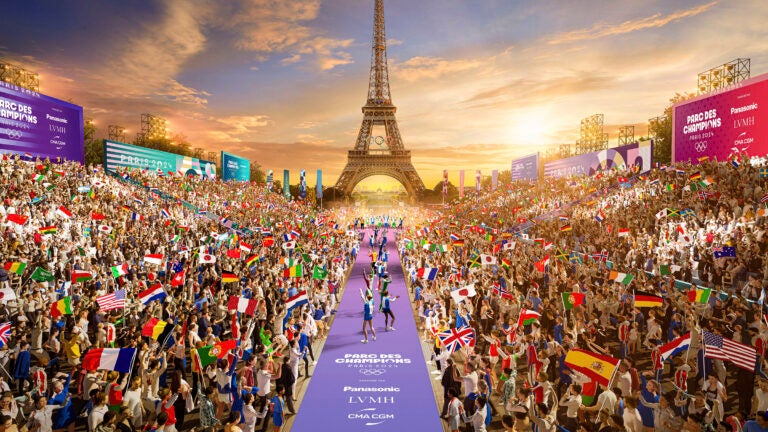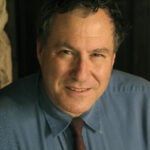(Image/©Paris2024)
Source Alert
Paris 2024: USC experts on geopolitics and the Olympics
When French historian and educator Baron Pierre de Coubertin founded the modern Olympics in 1896, he did so with a vision of promoting peace through sport. In reality, the Olympics have often reflected the geopolitics of the period.
Multiple wars rage, political instability is shaking France, and anxiety mounts about the U.S. presidential election. Earlier today, tensions flared when Olympic officials moved to crush U.S. probes into a Chinese doping scandal.
USC experts in foreign policy and international relations are available to discuss.
Contact: Nina Raffio, raffio@usc.edu or (213) 442-8464; USC Media Relations, uscnews@usc.edu or (213) 740-2215
The Olympics: Apolitical in theory, but not in practice
 “In the world we have, we know that the Olympics are political. The United States boycotted the 1980 Moscow Olympics because of the Soviet invasion of Afghanistan, and earlier, in 1968, two Black American runners raised their fists in a black power salute on the winners’ podium,” said Gregory Treverton, professor of the practice of international relations and spatial sciences at the USC Dornsife College of Letters, Arts and Sciences.
“In the world we have, we know that the Olympics are political. The United States boycotted the 1980 Moscow Olympics because of the Soviet invasion of Afghanistan, and earlier, in 1968, two Black American runners raised their fists in a black power salute on the winners’ podium,” said Gregory Treverton, professor of the practice of international relations and spatial sciences at the USC Dornsife College of Letters, Arts and Sciences.
“The main benefit of the Olympics from a political perspective probably is the athletes themselves, getting to get to know their counterparts from other countries. The right approach for the United States is to field the best of its athletes and work hard to make sure they compete in the most sportsman-like way possible. It is inevitable that medal counts will be news, but the more that can be discouraged, the better. The Olympics should be about athletes, not nations.”
Contact: treverto@usc.edu
The Russian Olympic ban, explained
 In Paris, athletes from Russia and Belarus will compete as Individual Neutral Athletes, without national flags or anthems, and excluded from the official medal table.
In Paris, athletes from Russia and Belarus will compete as Individual Neutral Athletes, without national flags or anthems, and excluded from the official medal table.
“Russia is effectively banned from the 2024 Summer Olympics because of its war in Ukraine. Ideally, this ban would work as another sanction in the effort to pressure Russia to stop the war,” said Robert English, an associate professor of international relations, Slavic languages and literature and environmental studies at USC Dornsife.
“Practically, it will have zero such effect and mainly serves to further alienate ordinary Russians against the West,” he said.
Contact: renglish@usc.edu
Disruptions during the games are likely, expert says
 Jonathan Aronson, a professor of communication at the USC Annenberg School for Communications and Journalism and a professor of political science and international relations at USC Dornsife, warned that the high-profile nature of the Olympics brings with it the potential for demonstrations or acts of violence, a Russian attack in Ukraine aimed at distracting global attention, efforts by right-wing French or European Union factions to undermine President Macron, road closures and travel disruptions, or a major cyberattack that could disrupt events.
Jonathan Aronson, a professor of communication at the USC Annenberg School for Communications and Journalism and a professor of political science and international relations at USC Dornsife, warned that the high-profile nature of the Olympics brings with it the potential for demonstrations or acts of violence, a Russian attack in Ukraine aimed at distracting global attention, efforts by right-wing French or European Union factions to undermine President Macron, road closures and travel disruptions, or a major cyberattack that could disrupt events.
“If the Olympics proceed without significant disruptions, it will be considered a major success and a huge relief for the organizers,” he said. “While there will be many touching personal stories during the Olympics, it is unrealistic to expect a widespread moment of public diplomacy or a unifying atmosphere.”
Contact: aronson@usc.edu
The Olympics and reputational security
 “We live in an era in which reputation is central to the security of nations. International actors compete to showcase their own strengths and reveal the weaknesses of their adversaries (real or imagined). In this world of reputational security, a mega event like the Olympics becomes a key platform to the host and participants alike.,” said Nicholas Cull, an expert in public diplomacy and a professor of communication at USC Annenberg.
“We live in an era in which reputation is central to the security of nations. International actors compete to showcase their own strengths and reveal the weaknesses of their adversaries (real or imagined). In this world of reputational security, a mega event like the Olympics becomes a key platform to the host and participants alike.,” said Nicholas Cull, an expert in public diplomacy and a professor of communication at USC Annenberg.
“Personally, I’ll be watching out for athletes from the least known countries. For somewhere like Kosovo, an Olympic success like their women’s judo wins by Majlinda Kelmendi in 2016 is a massive deal which bolsters arguments that they belong as a nation in their own right and are more than a runaway province of their neighbor, Serbia.”
Contact: cull@usc.edu
###
(Photo/©Paris2024)



